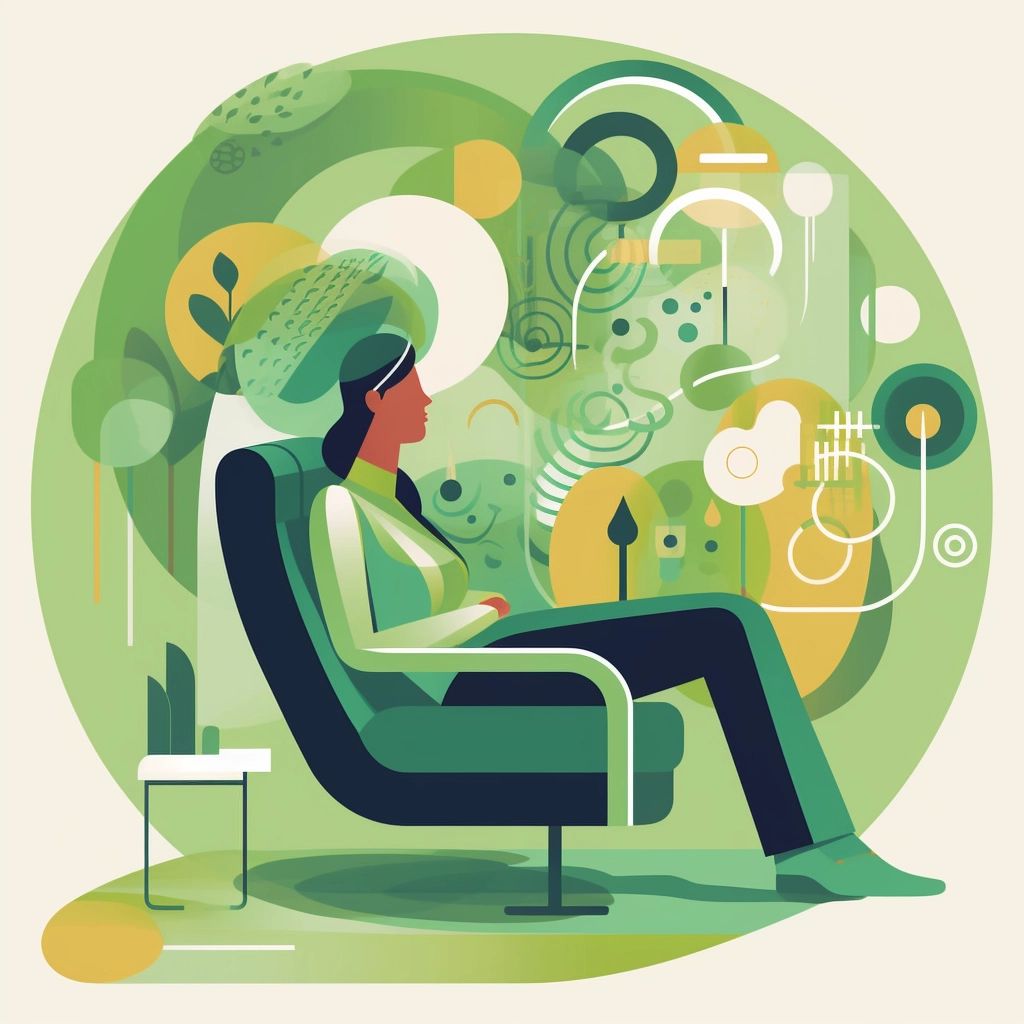INFJ Mental Illness: What Mental Illness Do INFJs Have?

The INFJ personality type, derived from the Myers-Briggs Type Indicator (MBTI), is a rare and intriguing one. Often referred to as the “Advocate” or “Counselor,” INFJs are known for their unique blend of traits, including empathy, creativity, and a deep sense of purpose. This personality type carries significance not only in understanding how individuals relate to the world but also in exploring the intricate connection between mental health and personality.
The purpose of this article is to delve into the relationship between mental health and the INFJ personality, uncovering the challenges they may face and the strategies they can employ to foster better mental well-being. By combining scientific evidence and personal insight, we aim to shed light on the complex world of INFJ mental health, providing valuable guidance and support for this distinctive group of individuals.
What is the INFJ Personality?
The INFJ personality type, according to the Myers-Briggs Type Indicator (MBTI), is a fascinating blend of traits that makes it stand out in the crowd. INFJ stands for Introverted, Intuitive, Feeling, and Judging. Here’s a quick breakdown of what this means:

- Introverted (I): INFJs tend to draw their energy from within, finding solace in solitude and often thriving in quiet, introspective settings.
- Intuitive (N): They possess a deep sense of intuition, relying on their gut feelings and a strong ability to read between the lines.
- Feeling (F): INFJs are emotionally attuned individuals who make decisions based on their values and how their choices affect others.
- Judging (J): They prefer structure and organization, often planning and sticking to well-thought-out routines.
Strengths and Weaknesses of INFJs
Strengths
- Empathy: INFJs are highly empathetic, making them exceptional at understanding and supporting others.
- Creativity: They possess a vivid imagination and the ability to envision new possibilities.
- Dedication: INFJs are committed to their causes and can be incredibly determined.
Weaknesses
- Perfectionism: They can be hard on themselves, striving for unattainable perfection.
- Overthinking: Their intuitive nature can lead to overanalyzing situations.
- Isolation: Due to their introverted tendencies, they might sometimes isolate themselves when stressed.
Understanding these fundamental traits is crucial for unraveling the connection between the INFJ personality and mental health. INFJs have unique qualities that shape how they approach and navigate challenges, which we’ll explore further in this article.
| Related: The Connection Between INFJ Personality and Eating Disorders
The Link Between Personality and Mental Health
It’s no secret that our personality traits can significantly impact our mental health. The INFJ personality type is no exception. Research has shown that personality can shape our responses to stress, how we cope with challenges, and even our vulnerability to specific mental health issues.

A study published in the “Journal of Abnormal Psychology” demonstrated that certain personality traits, such as high levels of neuroticism (often linked to anxiety and depression), can be associated with a higher risk of developing mental health problems.
Another study published in the “Journal of Personality” found that individuals with higher levels of extraversion and conscientiousness tend to report better mental health outcomes.
| Read More: INFJ and OCD | Is There a Connection?
Impact of Personality on Mental Well-being
When it comes to INFJs, their personality traits can both positively and negatively influence their mental well-being:
Positives
INFJs’ empathy and emotional intelligence can enhance their mental well-being. Their ability to understand and connect with others often leads to a strong support network, which can be a protective factor against mental health issues.
Negatives
On the flip side, the INFJ’s inclination towards perfectionism and overthinking can be a source of stress and anxiety, potentially increasing vulnerability to mental health challenges.
Understanding the interplay between personality and mental health is essential for INFJs and those who care about them. It can help them harness their strengths and mitigate potential pitfalls, fostering better overall well-being.
INFJ Mental Health: The Unique Challenges
The INFJ personality type, while bringing many strengths, also comes with its own set of unique challenges concerning mental health. Research has shown that INFJs may face distinctive difficulties:

According to a study in the “Journal of Psychological Type” by Elisabeth Jones, INFJs may experience heightened levels of stress due to their desire to help and support others. This constant emotional giving can lead to emotional burnout.
Common Stressors and Triggers
The INFJ’s personality traits can serve as both sources of strength and vulnerability. Some common stressors and triggers for INFJs, considering their personality traits, include:
- Perfectionism: The INFJ’s pursuit of perfection can lead to self-imposed stress. They often set high standards for themselves and can become overly critical when they feel they fall short.
- Conflict Avoidance: INFJs tend to avoid conflict, which can lead to repressed emotions and internalized stress, potentially contributing to mental health issues.
- Overthinking: Their intuitive nature can make them prone to rumination, dwelling on past events, and worrying about the future, which can be exhausting.
Recognizing and addressing these unique challenges is crucial in helping INFJs maintain good mental health. By understanding their triggers and stressors, INFJs can proactively take steps to alleviate the strain and maintain a positive sense of well-being.
Unlock the hidden connection between INFJ personalities and ADHD!
Dive into the intriguing link that bridges these worlds and discover how they intersect.
Explore ‘INFJ and ADHD‘ now!
INFJ Mental Illness: What mental illness are INFJs more prone to?
INFJs, like all personality types, can face mental health challenges. The prevalence of mental health issues among INFJs, while not solely determined by their personality type, is influenced by various factors, including genetics, environment, and life experiences.

INFJs may be more prone to certain types of mental illnesses or disorders based on their personality traits. While not every INFJ will experience these conditions, some are commonly associated with this personality type:
- Generalized Anxiety Disorders: INFJs’ overthinking and perfectionism can contribute to the development of anxiety disorders, such as generalized anxiety disorder (GAD) or social anxiety disorder (SAD).
- Depression: The empathetic and sensitive nature of INFJs may make them more susceptible to depressive disorders.
- Burnout: Due to their strong desire to help others and their high standards, INFJs may be at a higher risk of experiencing burnout, which can manifest as mental and physical exhaustion.
It’s important to note that the relationship between personality type and mental health is complex, and not all individuals of a specific personality type will experience mental illness. It’s vital to focus on individual experiences and seek professional help if needed. Understanding the potential risks associated with personality traits can be a step towards better mental health awareness and management for INFJs.
| Suggestion: INFJ Depression: Unraveling the Complex Mind
Coping Strategies for INFJ Mental Illness
Managing mental health effectively is crucial for INFJs, as it is for anyone. Here are some practical strategies tailored to their unique needs:
- Set Realistic Goals: INFJs should challenge their perfectionism by setting achievable, realistic goals. This can reduce self-imposed stress.
- Embrace Self-Compassion: Learning to be kind and forgiving toward themselves is essential. INFJs should treat themselves as they would a dear friend.
- Mindfulness and Relaxation Techniques: Engaging in mindfulness exercises and relaxation practices can help reduce the impact of overthinking and anxiety.

Self-Care, Therapy, and Support Systems
- Self-Care Practices: INFJs can benefit from self-care routines that nurture their emotional well-being. These may include regular exercise, spending time in nature, practicing creative hobbies, and maintaining a healthy work-life balance.
- Therapy and Counseling: Seeking professional help from therapists or counselors can be incredibly beneficial. They can provide guidance in managing stress, anxiety, and depression and help INFJs develop coping strategies tailored to their personality type.
- Support Systems: Building a strong support network is key. INFJs should lean on friends and family for emotional support and consider joining online or in-person communities where they can connect with others who share similar experiences.
Remember, managing mental health is an ongoing process, and what works best can vary from one INFJ to another. The key is to be proactive, seek help when needed, and prioritize self-care to maintain good mental health. These strategies can be empowering tools on the path to well-being.
HealWiser’s Last Piece of Advice
In this exploration of INFJ mental health, we’ve uncovered the unique challenges that individuals with this personality type may face. While scientific evidence provides insight, it’s important to remember that individual experiences vary.
The importance of addressing mental health within the context of personality type, such as the INFJ, cannot be overstated. By understanding the interplay between personality traits and mental health, individuals and their support systems can better navigate the path to well-being. Embracing self-compassion, seeking professional help, and prioritizing self-care are vital steps on this journey. Mental health matters, and acknowledging the unique needs of INFJs is a significant stride toward a healthier, happier life.
Sharing your experience can provide valuable insights and emotional support. So…
…share your story with HealWiser and others in the comments section below this post.






